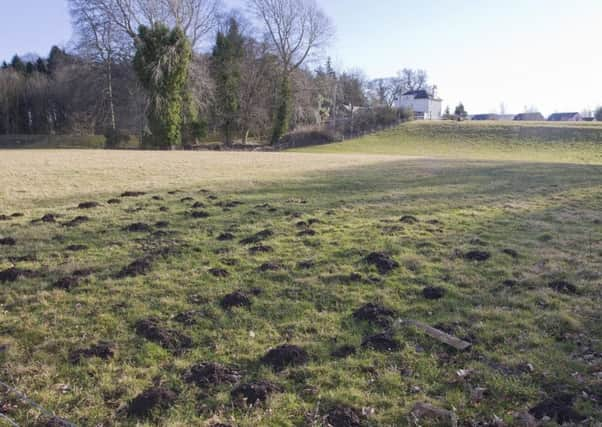Call goes out for inquiry into Borders council’s £9.6m deal to buy Lowood Estate


Hawick and Hermitage councillor Davie Paterson is taking issue with the deal after it emerged that the £9.6m of taxpayers’ money used to pay for the 110 acres of land ended up in two Cayman Islands accounts and so were not subject to transaction tax.
Landowner Alexander Hamilton was paid via Lowood Estates and Genesis Trust and Corporate Services, both of which are based in the British overseas territory, it was revealed in response to a freedom-of-information request by former Hawick councillor Andrew Farquhar.
Advertisement
Hide AdAdvertisement
Hide AdBorders taxpayers, on the other hand, face forking out £422,250 in land and buildings transaction tax, as well as a £30,000 VAT bill, taking, along with other fees, the cost of the deal up to nearly £11m.
At this week’s full council meeting, held in Kelso yesterday, May 16, Mr Paterson asked: “Will the council be scrapping the deal regarding the Lowood Estate, which was agreed with a company based in the Cayman Islands?
“I am convinced that the vote, which was extremely close, would have been much different.”
Mid Berwickshire councillor Mark Rowley, the administration’s member for business and economic development, fielded that question, saying: “The council negotiated the acquisition of the Lowood Estate with agents representing the Hamilton family.
Advertisement
Hide AdAdvertisement
Hide Ad“As a public authority, the council was required to provide the information requested by Mr Farquhar.
“The information has been publicised in a way that, in our view, and my own personal view, is entirely inappropriate.
“The council believes that private individuals, in this case the Hamilton family, should not be subject to this level of scrutiny regarding how they conduct their entirely personal financial and legitimate tax affairs, which is a matter for them.
“The council remains of the view that the robust business case on which the decision to acquire Lowood for economic development purposes was based still stands.
Advertisement
Hide AdAdvertisement
Hide Ad“The purchase of the site, now in public ownership, will provide good long-term value for the taxpayer, creating jobs, new homes and delivering economic benefits.
“The transaction is now complete and cannot be reversed.”
The Lowood Estate, sitting alongside the River Tweed, is earmarked to host 300-plus homes and an industrial estate.
The council estimates that developing the estate would cost an extra £90m on top of the price of the land but would potentially generate £150m of gross value added for the region’s economy.
In a follow-up to his question, Mr Paterson called for an inquiry into the purchase, asking: “How many councillors knew about these tax circumstances before the vote? I certainly didn’t.
Advertisement
Hide AdAdvertisement
Hide Ad“Councillors should instruct the chief executive to carry out an immediate inquiry into this whole episode and to find out who knew what and when?
“If councillors knew about this tax situation, I think the vote would have been much different.”
Mr Rowley replied: “I think that’s entirely conjecture.
“The matter of the fact is that this council now owns that significant asset.
“It is in our ownership and our control and it is of strategic value, which is a very good thing.
Advertisement
Hide AdAdvertisement
Hide Ad“I think the mischief-making around this is really unfortunate, not least as some of the comment that has gone into the public domain has been provided by the adjacent owner, an Isle of Man-registered company.”
The deal agreed in December was for the remaining 110 acres of land at Lowood still in private hands to add to 190 acres bought from then owner Constance Hamilton using compulsory powers by the former Roxburgh County Council in the early 1970s to create Tweedbank.